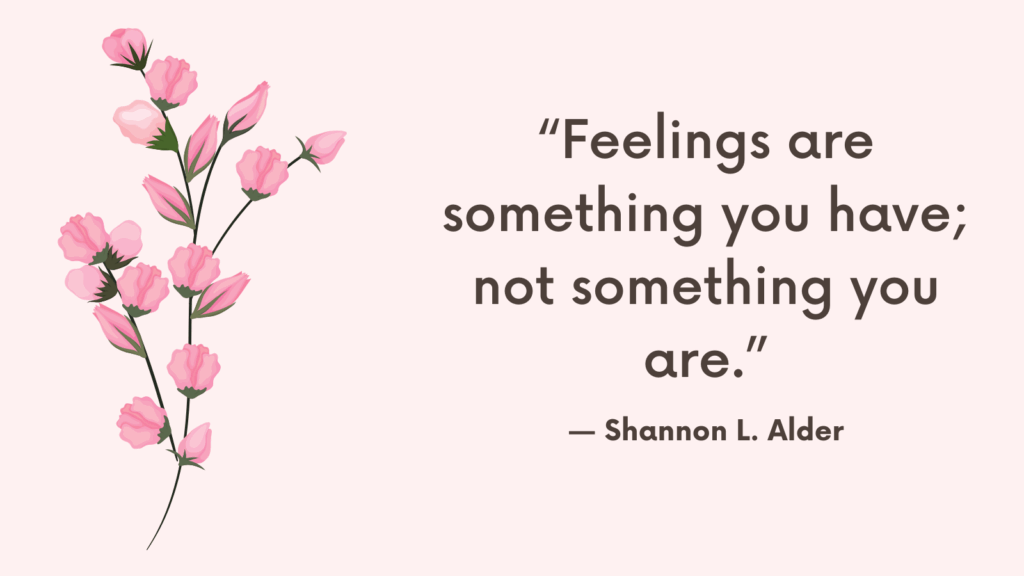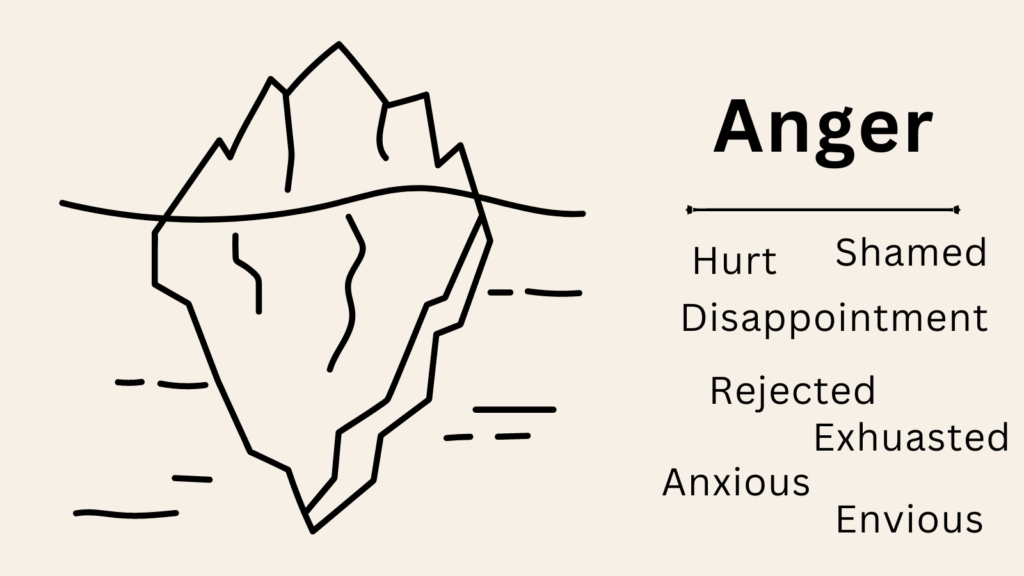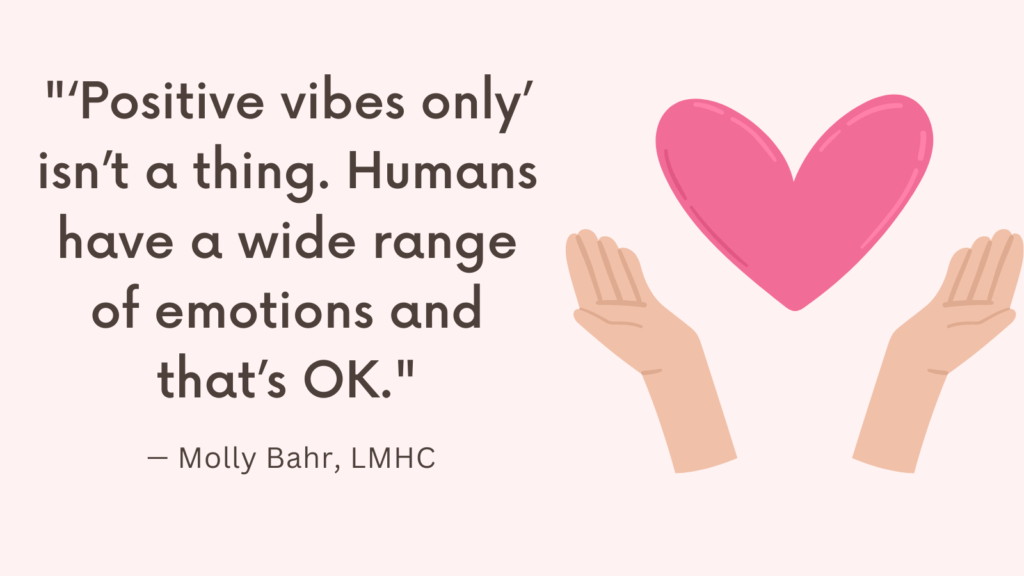In this post, you’ll learn all about assertive anger.
What Is Assertive Anger?
Assertive anger is a healthy and constructive expression of anger that involves expressing your feelings, needs, and boundaries in a clear and respectful manner while respecting the rights of others.
It is a communication style that allows individuals to assert themselves without resorting to aggression or passive-aggressive behavior.
The Dangers of Suppressing or Ignoring Anger
Suppressing or ignoring anger can lead to various negative consequences for both your emotional well-being and your relationships.
It is important to acknowledge and address anger in a healthy way.
Here are some of the dangers associated with suppressing or ignoring anger:
1. Increased stress levels: When you consistently suppress or ignore anger, it can build up over time and contribute to chronic stress. Unresolved anger can manifest as physical symptoms such as headaches, muscle tension, and increased blood pressure.
2. Negative impact on mental health: Bottling up anger can have detrimental effects on your mental health. It may increase feelings of frustration, resentment, and irritability, which can lead to anxiety, depression, and even contribute to the development of other mental health disorders.
3. Damaged relationships: Ignoring anger can result in unresolved conflicts within your relationships. When anger remains unexpressed, it can create distance and misunderstandings between individuals. Suppressing anger may lead to passive-aggressive behaviors, causing further strain in relationships.
4. Reduced self-esteem: Ignoring or suppressing anger can erode your self-esteem over time. By not addressing your feelings, you may begin to feel unheard, invalidated, or powerless, which can negatively impact your self-worth.
5. Escalation of anger: When anger is consistently suppressed, it can reach a boiling point where it becomes difficult to control. This can result in explosive outbursts or aggressive behavior, damaging relationships and potentially leading to harmful consequences.
6. Impact on physical health: Chronic suppression of anger has been linked to various physical health issues. Research suggests that long-term suppression of anger can contribute to cardiovascular problems, weakened immune system functioning, and increased vulnerability to certain illnesses.
It is crucial to find healthy ways to express and manage anger in order to avoid these potential dangers.
Related: Top 14 CBT Exercise For Anger Management (+FREE Anger Worksheets)
Characteristics of Assertive Anger
Assertive anger is characterized by certain traits and behaviors that help individuals express their anger in a healthy and productive manner.
Here are some key characteristics of assertive anger:
1. Respectful communication: When expressing assertive anger, individuals communicate their feelings and concerns in a respectful and non-threatening way. They avoid using aggressive language, insults, or personal attacks.
2. Clear expression of feelings: Assertive anger involves clearly and directly expressing one’s emotions without suppressing or denying them. Individuals use “I” statements to take responsibility for their feelings and avoid blaming others.
3. Active listening: Assertive anger incorporates active listening skills, allowing individuals to genuinely hear and understand the perspectives and emotions of others involved in the situation. This promotes empathy and helps prevent misunderstandings.
4. Non-verbal cues: Body language plays a significant role in assertive anger. People adopt open and relaxed postures, maintain eye contact, and use appropriate facial expressions to enhance effective communication and convey their emotions assertively.
5. Problem-solving approach: Instead of focusing solely on venting frustration, assertive anger aims to find constructive solutions to conflicts. It involves engaging in dialogue and negotiation to address the underlying issues fueling the anger and work towards resolution.
6. Setting boundaries: Assertive anger involves setting and asserting personal boundaries. This means communicating what is acceptable or unacceptable behavior to establish healthy relationships and prevent future conflicts.
7. Emotional regulation: Individuals who practice assertive anger have developed coping skills to manage their emotions effectively. They can identify triggers, employ relaxation techniques, and engage in self-care to prevent their anger from escalating into aggression or hostility.
Related: Anger Iceberg: How to Use It (+FREE Anger Iceberg Worksheet PDF)

How to Practice Assertive Anger?
Practicing assertive anger involves expressing your anger in a healthy and constructive manner.
Here are some steps to help you practice assertive anger:
1. Recognize and acknowledge your anger
The first step is to be aware of your anger and acknowledge its presence.
Take notice of the physical and emotional signs of anger in your body and mind.
2. Understand the source and triggers
Explore the underlying reasons for your anger.
Identify the specific situations, people, or events that trigger your anger.
Understanding the root causes can help you address them more effectively.
3. Choose the right time and place
Find an appropriate time and place to express your anger.
It’s important to choose a calm and private setting where you can communicate without distractions or interruptions.
Related: Best 10 Anger Management Books And Workbooks
4. Use “I” statements
When expressing your anger, use “I” statements to convey your feelings and needs instead of blaming or criticizing others.
For example, say, “I feel frustrated when…” rather than “You always make me angry.”
5. Stay calm and composed
While expressing anger, try to maintain a calm and composed demeanor.
Avoid aggressive or violent behavior, such as shouting or physical aggression, as it can escalate the situation and hinder effective communication.
6. Clearly express your feelings and needs
Clearly communicate how you feel and what you need in the situation that triggered your anger.
Use assertive language and be specific about your expectations or desires.
Related: Top 15 Anger Journal Prompts (+FREE Worksheets)
7. Listen actively
Allow the other person involved to express their viewpoint and listen actively.
Practice empathy and try to understand their perspective.
Effective communication involves a two-way dialogue.
8. Seek compromise or problem-solving
Once you have expressed your anger and listened to the other person, work towards finding a compromise or solution that addresses both parties’ needs.
Collaborate and brainstorm ideas together.
Related: Top 5 Tips On How To Be Assertive Without Being Rude
9. Practice self-care and relaxation techniques
After expressing your anger, engage in self-care activities that help you relax and reduce any remaining tension.
This may include deep breathing exercises, meditation, physical exercise, or engaging in hobbies you enjoy.

Common Mistakes to Avoid When Using Assertive Anger
When practicing assertive anger, it’s important to be mindful of certain common mistakes that can hinder effective communication and resolution.
Here are some mistakes you should try to avoid:
1. Aggression or hostility
It is crucial to differentiate between assertiveness and aggression.
Aggression involves attacking or intimidating others, while assertiveness focuses on expressing your feelings and needs respectfully.
Avoid using harsh or insulting language, shouting, or engaging in physical aggression.
2. Personal attacks
Avoid making personal attacks or resorting to name-calling when expressing your anger.
Instead, focus on the specific behaviors or actions that triggered your anger and how they affected you.
Related: Top 35 Boundaries Affirmations To Help You Become More Assertive
3. Generalization
Refrain from using sweeping statements or generalizations about the person or situation that angered you.
Instead, address specific instances or behaviors, as generalizations can escalate conflicts and create defensiveness.
4. Holding onto anger
Expressing anger is healthy and constructive, but holding onto it for prolonged periods can be detrimental to your well-being.
It’s important to understand that expressing anger does not mean holding grudges or seeking revenge.
Learn to let go and find ways to cope with your anger constructively.
Related: Best 10 Books On Being Assertive
5. Ignoring the other person’s perspective
Effective communication involves active listening and acknowledging the other person’s viewpoint, even if you disagree.
Avoid dismissing or ignoring their perspective, as it can hinder open dialogue and problem-solving.
6. Lack of empathy
Empathy plays a crucial role in resolving conflicts.
Try to put yourself in the other person’s shoes and understand their feelings and needs.
Acknowledging their emotions does not invalidate your own; it fosters understanding and mutual respect.
7. Poor timing or environment
Choose an appropriate time and place to express your anger.
Avoid confrontations in public or when either party is already stressed or upset.
Create a calm and private environment that promotes open and honest communication.
Related: Best 9 Tips On How To Receive More In Life And Relationships?
8. Dismissing emotions
Emotional expression is valid and essential.
Avoid minimizing or dismissing your own or others’ emotions.
Recognize that different people may experience and express emotions differently.
9. Lack of follow-up or resolution
After expressing your anger, make an effort to find a resolution or compromise that addresses the underlying issues.
Follow through on any agreements or changes discussed during the communication process.
Related: How To Validate Someone’s Feelings Without Agreeing? (+Examples of Validating Statements)
Conclusion
Developing assertive anger requires practice, self-awareness, and the willingness to learn effective communication skills.
Taking the time to understand and express your anger assertively can lead to healthier and more fulfilling relationships.



